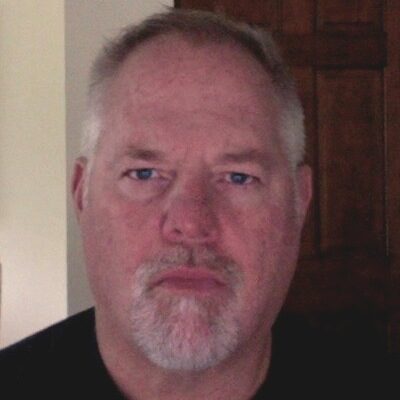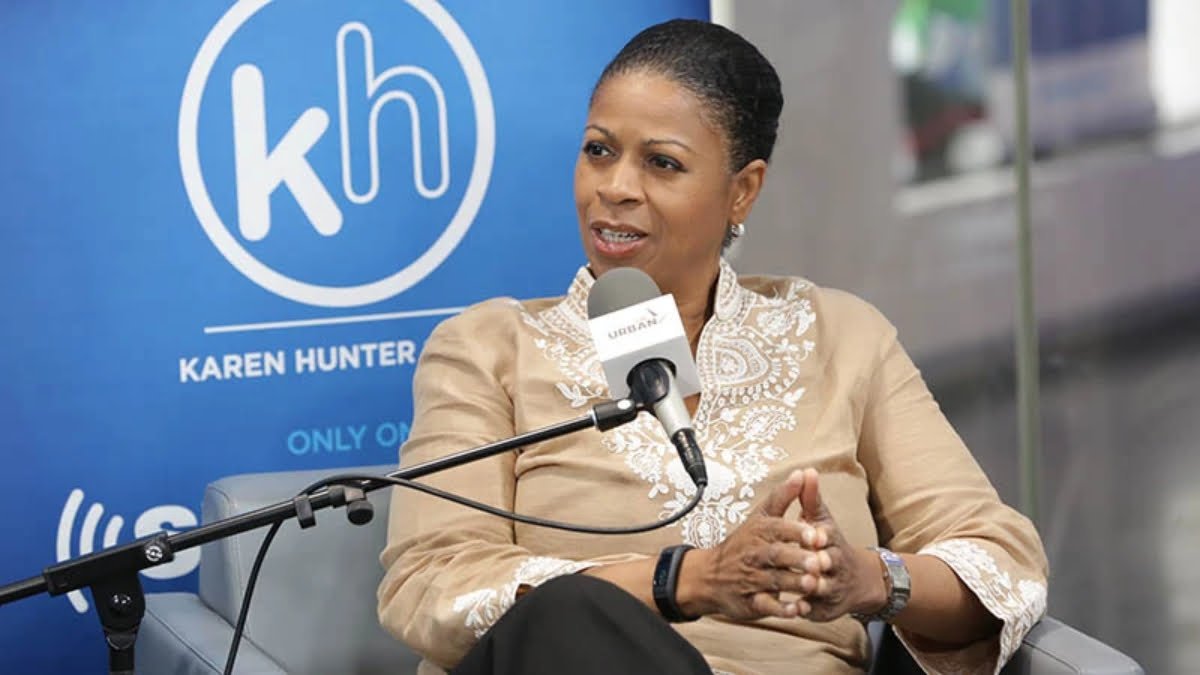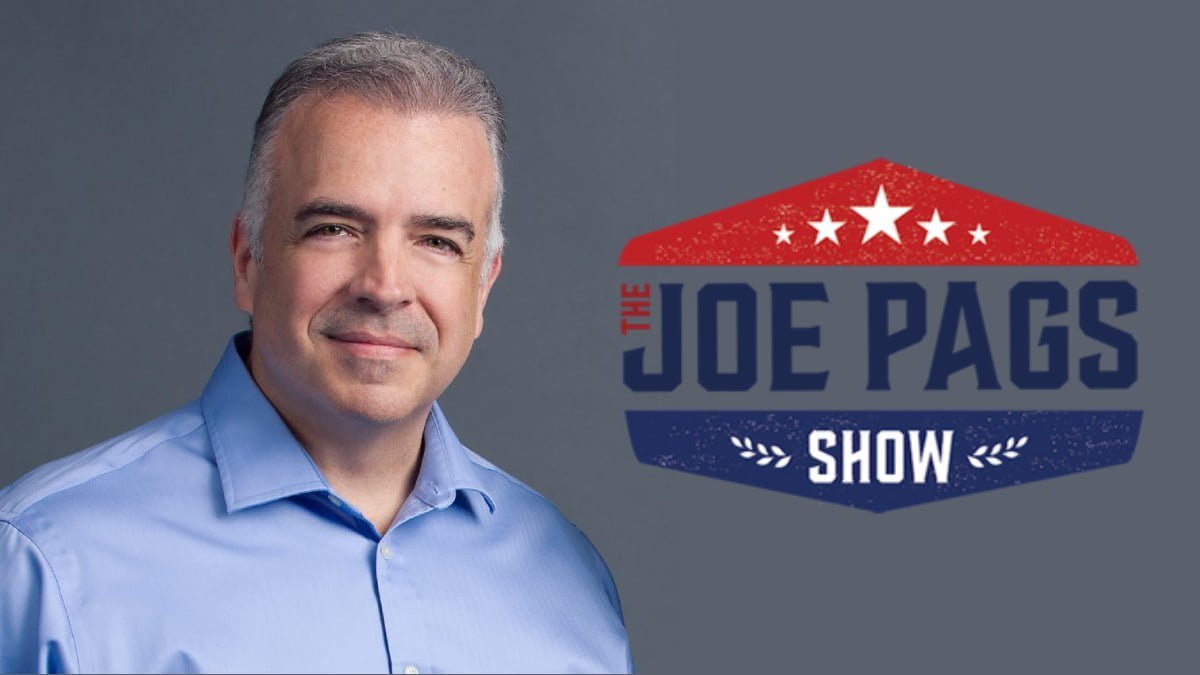The woman is never bored. Karen Hunter can’t even recall the last time she was bored.
“Maybe when I was five years old,” Hunter said. “I talk to people, that’s what I do. People, by nature, are interesting. People I’ve talked to have done something, written something, or lived a remarkable life.”
Hunter sees her responsibility is to be curious about people, and about life.
“I’m a journalist, and I teach journalism. That’s the biggest thing, if you’re not curious, journalism is not the business for you.”
She said it’s parents who inform you when you’re young.
“We are the sum total of our experiences and the people who have affected us. I want to know who your parents were, and the things that impacted you. Every one of us has their origin story. Their Road to Damascus story,” Hunter explained.
Her parents put absolutely everything they had into her. They were married for 47 years and had their daughter while they were in their 20s.
“I watched them grow up. My family owned a grocery store left to them by my grandfather. My father was the first in the family to graduate from college. He was also a parole officer. He’d come home to work in the store during his lunch breaks.”
She said after work as a parole officer, he’d come home and reconcile the books for the store. He’d work holidays.
“Nothing happens without consistency and commitment,” Hunter said. “He grew up with both. He sent people to college. He was a beacon, and he lit everything up.”
Hunter was a latchkey kid, and that gave her a sense of responsibility. She explained how she owes her parents so much. In her house, books were everywhere.
“We’d play games and my father wouldn’t just let me win just to let me win. I had to earn it. I’m competitive in Scrabble. Games are so important. We had Uno, Clue, and Monopoly. Games are important because they make you interact. Segregation in our lives is willful. People run away from each other instead of running toward each other.”
Karen Hunter can be heard weekdays from 3:00-6:00 PM ET on Urban View on SiriusXM channel 126.
She earned her BA in English from Drew University, taught journalism at NYU for three years, and has continued to teach at Hunter for the past 21 years.
Hunter said the president of Hunter College, Jennifer Raab, is responsible for large endowments for the university.
“Ruby Dee and Audre Lorde are amazing examples of alumni from Hunter. One of the first colleges in the country to turn out notable Black women.”
During the past four years, she said Hunter College has instituted a journalism concentration. Hunter is a professor in the media and film department.
“I was brought in to shore up the journalism program. The journalism track is new at Hunter College, and I feel like there has been a resurgence,” Hunter said. “Journalism is a necessity in our country. I tell my students what I’m teaching them they won’t see in a workplace. They are the next generation. I’m teaching them to recognize when things aren’t true. When somebody isn’t being genuine, when you’re being gaslit.”
Hunter said young journalists need to discover where bias is in the medium. She urges her students to talk about media, listen to daily podcasts, and extract information in short format using audio. Hunter explains journalism isn’t just about getting it right. Her students will be the eyes and ears of the listeners and believes her students should think about it that way.
In regards to the recently settled case between Dominion and Fox, Hunter was a bit disappointed as it would have been the trial of the century.
“That’s the case we should have had,” Hunter said. “Everything you watch on television is performance. It’s scripted, and they’re reading off of teleprompters. Many hosts on television are not journalists, even people like Anderson Cooper. When he’s in Haiti, he’ll pick up a child over here, get this angle, make sure the lighting is right. Anything to make the story more emotional. He’s not in the thick of it. We’re not covering wars the same way. We’re no longer in the trenches.”
When Hunter gets up in the morning, CNBC and the markets will tell her everything she needs to know to prepare herself for the day.
“The conversations there give me direction in a lot of things. I read the financials all the time, and they give me an unfiltered global view.
“Everything in this world is run through money,” Hunter explained. “This is capitalism at its heart, how many money moves that are made impact our lives. We say this all the time, follow the money. I get a lot of indicators from watching the markets and give me my breadcrumbs. Go to the citations at the bottom of an article. That’s where you get the real information. Things you want to know.”
Despite schools dropping curriculums that feature journalism as a specific degree, Hunter said a resurgence will only happen if it is demanded. Hunter has been successful in a lot of different areas, not only in radio.
Hunter said a host may come on the air and say something meaningless to get a reaction from the audience. Something like, ‘Men are horrible. Women, don’t you agree?’ With that kind of blanket statement, the phone lines will blow up. It’s all manufactured. This is how the media is driven, the arguing and bickering.
“All the talking and arguing on the air is monotonous and not formative,” she said. “You see someone like Trump, who has gotten billions of dollars in free advertising from hosts and stations,” Hunter said. “He’s such a polarizing figure and the networks are going to keep him going because they’re making money while destroying the sanctity of journalism.”
Hunter said she’s intentional about shaping cultures and challenging them. It’s all about opening a dialogue.
“What’s happening today has broken our brains and hearts,” she said. “I don’t agree with my mother on things. Spouses don’t agree with each other. It’s all about ganging up against people. It challenges your way of thinking. The experiment in life is to stretch yourself. You don’t have to like everyone else.”
Hunter said it’s all going to crash and burn before it gets better.
“We’re hitting the iceberg, watching the meteor come toward the earth and destroy everything. It’s going to get worse before it gets better. But after a volcano, you’re left with lush soil. We’re in the eruption part of the volcano and MAGA is melting away. I look at the new crop coming in. I’m optimistic about young people. I’m going to hold the fort until the lava dries.”
Hunter started as a sportswriter in 1988, then wrote features and business stories. When she graduated from college, her mother told her she had to find a job.
“As an English major, I wasn’t sure which direction I should go. I found two jobs at a local paper in town, the News-Record. I applied. The paper was owned by a couple and they told me one job was a reporter position and the other was a sports editor. The editing job paid more so I took that one. I realized there were very few black women reporting sports. I was there for three months then started at the Ledger.”
It was then her career took off. She had a news story appear on the front page of the Sunday news about a kid who played basketball but went to a homeless shelter at night.
“Once you’re in the business you make relationships,” Hunter explained.
“I covered the death of Arthur Ashe, the murder of Michael Jordan’s father. They started sending me out to do news-related stories. The key is to find the angle to the story. Everyone is going to write about the game-winning home run, the X’s and O’s. When I started I was doing Yankee and Mets sidebars. Everyone was writing about baseball prowess. I looked for the human angle. Something that would resonate with people that weren’t only interested in the game.”
She’s co-authored eight New York Times bestsellers.
“If you’re a writer, you have to write,” Hunter said. “I’m a journalist, I don’t think of myself as a writer, I’m a person who can put things together. I’m a visionary, not a classic writer.”
Hunter doesn’t go to bed with notepads on the side table. It’s not the writing that drives her. She puts things together to drive people to something they want to learn about. The one who thinks about the three critical moments in a story that ultimately makes the book. It’s already there, and it’s not driven by words.
“I can appreciate great writing, but I can’t do it,” she said. “I don’t look at what anybody else is doing. We have fingerprints for a reason. Find your excellence. Your greatness. I admire Toni Morrison, but I’ll never write like her. There are writers in my field that like Danyel Smith. I’ll never write like her either.”

Jim Cryns writes features for Barrett News Media. He has spent time in radio as a reporter for WTMJ, and has served as an author and former writer for the Milwaukee Brewers. To touch base or pick up a copy of his new book: Talk To Me – Profiles on News Talkers and Media Leaders From Top 50 Markets, log on to Amazon or shoot Jim an email at jimcryns3_zhd@indeedemail.com.







